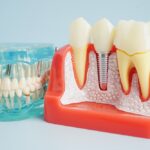Chronic sinusitis is a condition that causes persistent inflammation and discomfort in the nasal passages. While some cases respond to medication and conservative treatments, others require surgical intervention to find relief. Endoscopic sinus surgery represents an effective approach to treating severe chronic sinusitis, and understanding this procedure can help patients make informed decisions about their care.
What Is Chronic Sinusitis?
Chronic sinusitis occurs when the tissues lining the sinuses become inflamed for 12 weeks or longer, despite attempts at treatment. The condition affects the hollow spaces around the nose, cheeks, and forehead, causing persistent symptoms that interfere with daily life. Unlike acute sinusitis, which typically resolves within a few weeks, the chronic form persists and often requires more aggressive treatment approaches.
The inflammation associated with chronic sinusitis blocks normal drainage pathways in the sinuses. This blockage creates an environment where bacteria and other pathogens can thrive, leading to recurring infections and ongoing discomfort. Sinus surgery addresses the underlying structural problems that contribute to this condition, providing relief from symptoms.
What Are the Symptoms?
Nasal congestion is a common symptom of chronic sinusitis, and patients may experience difficulty breathing through their nose. This congestion often affects both nostrils, although the severity may vary from one side to the other. Facial pain and pressure may occur, typically concentrated around the cheeks, forehead, and bridge of the nose, and it may worsen when bending forward or lying down.
Additional symptoms include a reduced sense of smell and taste, which can impact quality of life. Postnasal drip creates a sensation of mucus draining down the back of the throat, and this often leads to throat irritation and persistent coughing. Some patients experience headaches, dental pain, and fatigue as secondary effects of their chronic sinus inflammation.
What Is Sinus Surgery?
Sinus surgery encompasses procedures designed to restore normal sinus drainage and reduce inflammation within the sinuses. Endoscopic sinus surgery utilizes thin, flexible instruments inserted through the nostrils to access and treat areas affected by sinus disease. The primary goal of endoscopic sinus surgery is to open blocked sinus passages and remove diseased tissue. The minimally invasive nature of this approach reduces recovery time and minimizes complications compared to other surgical methods.
What Does It Involve?
Endoscopic sinus surgery takes place under general anesthesia in an outpatient surgical setting. The procedure typically lasts a few hours, depending on the extent of treatment required, and most patients can return home the same day. Surgeons begin by inserting the endoscope through the nostril to visualize the sinus cavities and identify areas of inflammation or blockage.
The surgical team removes diseased tissue, polyps, and other obstructions using specialized instruments. They may also widen natural sinus openings to improve drainage and ventilation, and this helps prevent future blockages from developing. Recovery from surgery involves several weeks of healing and follow-up care.
What Are the Benefits?
The procedure provides long-term symptom improvement, and patients may experience a significant reduction in nasal congestion, facial pain, and sinus infections. The minimally invasive nature of endoscopic techniques results in faster recovery times compared to traditional surgical methods. Preserving normal nasal anatomy during the procedure helps maintain natural sinus function while addressing the underlying disease process. Additional benefits include reduced dependence on medications such as antibiotics and nasal steroids.
Treat Your Chronic Sinusitis Now
Endoscopic sinus surgery represents an effective treatment option for individuals suffering from chronic sinusitis that has not responded to conservative medical management. The procedure offers symptom relief while preserving normal sinus function through minimally invasive techniques. If you continue to experience persistent sinus symptoms despite medical treatment, consult an ENT specialist.











